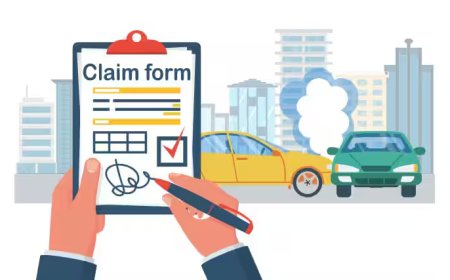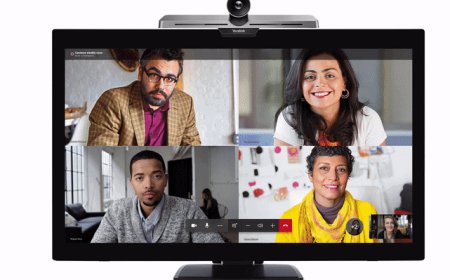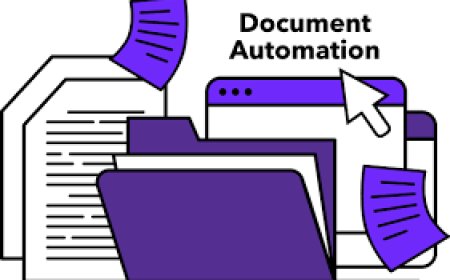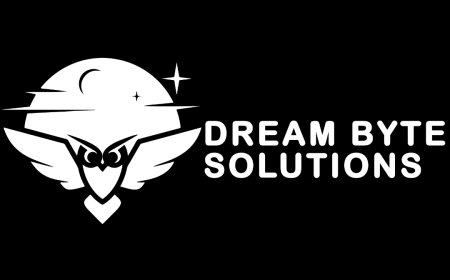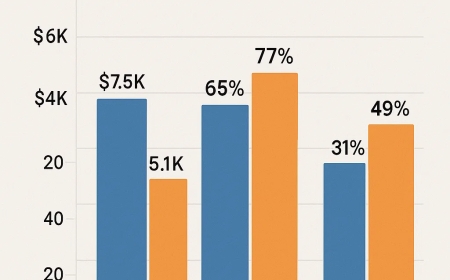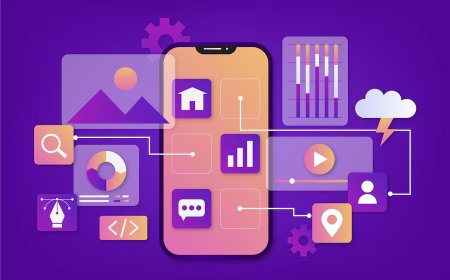How to Create Whatsapp Business Account
Introduction In today’s digital age, having a direct and efficient communication channel with customers is essential for businesses of all sizes. WhatsApp Business is a powerful tool designed to help businesses connect with their customers seamlessly. Unlike the standard WhatsApp Messenger, WhatsApp Business offers features tailored specifically for commerce, such as automated messages, business p
Introduction
In todays digital age, having a direct and efficient communication channel with customers is essential for businesses of all sizes. WhatsApp Business is a powerful tool designed to help businesses connect with their customers seamlessly. Unlike the standard WhatsApp Messenger, WhatsApp Business offers features tailored specifically for commerce, such as automated messages, business profiles, and quick replies. Creating a WhatsApp Business account can enhance your customer engagement, improve sales, and streamline your communication workflow.
This tutorial will guide you through the entire process of creating a WhatsApp Business account, offer best practices to maximize its potential, introduce useful tools and resources, showcase real-world examples, and address common questions. Whether you are a small business owner or managing a larger enterprise, learning how to create and optimize a WhatsApp Business account is a valuable skill.
Step-by-Step Guide
Step 1: Download the WhatsApp Business App
To begin, download the WhatsApp Business app from the Google Play Store or Apple App Store. This app is separate from the regular WhatsApp Messenger and is specifically designed for business use.
Step 2: Install and Open the App
Once downloaded, install the app and open it on your smartphone. Upon opening, you will be prompted to agree to the terms and conditions. Review and accept them to continue.
Step 3: Register Your Phone Number
WhatsApp Business requires a valid phone number to register your account. You can use either a mobile number or a landline number. It is recommended to use a dedicated number for your business to keep personal and business communications separate.
Enter your phone number and verify it using the SMS code sent by WhatsApp. If you are using a landline, choose the option to verify via a phone call.
Step 4: Set Up Your Business Profile
After verification, you will be prompted to create your business profile. This includes:
- Business Name: Choose a name that accurately represents your business. Note that this name cannot be changed frequently, so choose wisely.
- Business Category: Select the category that best fits your business, such as retail, restaurant, or services.
- Business Description: Provide a concise description of your products or services.
- Business Address: Add your physical location if applicable.
- Business Hours: Define your operating hours to inform customers when you are available.
- Email and Website: Add contact email and website URL for additional communication channels.
Step 5: Customize Messaging Tools
WhatsApp Business offers multiple messaging tools to improve customer interaction:
- Greeting Message: Automatically send a welcome message when a customer contacts you for the first time.
- Away Message: Notify customers when you are unavailable or outside business hours.
- Quick Replies: Save and reuse frequently sent messages for faster responses.
Configure these settings in the Business Tools section of the app.
Step 6: Organize Contacts with Labels
Use labels to categorize and organize your contacts and chats. For example, you can label customers as New Leads, Pending Orders, or Completed Sales. This helps in managing communication effectively.
Step 7: Start Communicating
Once your profile and messaging tools are set up, you can begin interacting with customers. Promote your WhatsApp Business number on your website, social media, and marketing materials to encourage customers to reach out.
Best Practices
Maintain a Professional Profile
Your business profile is often the first impression customers have. Use a clear business logo, accurate contact information, and a well-written description to build trust.
Respond Promptly and Politely
Timely responses improve customer satisfaction. Use quick replies to maintain consistency and efficiency but personalize messages when necessary.
Leverage Automated Messages Wisely
Configure greeting and away messages to set expectations but avoid overusing automation to keep conversations genuine.
Respect Customer Privacy
Ensure that you only contact customers who have opted in and avoid spamming. Follow data protection regulations relevant to your region.
Use Labels to Track Customer Journeys
Organizing contacts with labels allows you to tailor communication strategies for different customer segments and improve follow-ups.
Regularly Update Business Information
Keep your business hours, address, and contact details current to avoid confusion and missed opportunities.
Tools and Resources
WhatsApp Business API
For medium to large businesses requiring integration with CRM systems or automated workflows beyond the apps capabilities, the WhatsApp Business API offers advanced features. Note that this requires technical setup and approval from WhatsApp.
Third-Party CRM Integrations
Platforms like HubSpot, Zoho CRM, and Salesforce offer integrations with WhatsApp Business to centralize customer communication and data management.
Message Scheduling Tools
Third-party tools allow scheduling messages to be sent at optimal times, improving engagement without manual intervention.
Analytics and Reporting Tools
Some software solutions provide analytics on message open rates, response times, and customer engagement, helping refine your communication strategy.
Real Examples
Example 1: Local Retail Store
A local retail store uses WhatsApp Business to update customers about new arrivals and special discounts. By setting up greeting messages and quick replies, the store reduced response times by 50% and increased repeat purchases.
Example 2: Food Delivery Service
A food delivery business utilizes WhatsApp Business to take orders, confirm deliveries, and gather feedback. Automated away messages inform customers of delivery timelines during peak hours, enhancing transparency.
Example 3: Freelance Consultant
A freelance marketing consultant manages client communications via WhatsApp Business, using labels to differentiate between prospects, active clients, and completed projects. This organization streamlines follow-ups and project updates.
FAQs
Can I use my personal WhatsApp number for WhatsApp Business?
Yes, but it is recommended to use a separate phone number for business to avoid mixing personal and professional communications.
Is WhatsApp Business free to use?
The basic WhatsApp Business app is free, but advanced features via the WhatsApp Business API may incur costs depending on usage and service providers.
Can I use WhatsApp Business on multiple devices?
Currently, WhatsApp Business primarily supports one device per account. However, multi-device support is gradually being introduced with limitations.
What types of businesses benefit most from WhatsApp Business?
Small to medium businesses, retail stores, service providers, and consultants benefit greatly from the direct communication and automation features offered by WhatsApp Business.
How do I switch from WhatsApp Messenger to WhatsApp Business?
You can migrate your existing WhatsApp Messenger chats to WhatsApp Business during setup, ensuring continuity of conversations.
Conclusion
Creating a WhatsApp Business account is a straightforward yet impactful step toward enhancing customer communication and driving business growth. By following the step-by-step guide outlined above, setting up a professional profile, and adopting best practices, businesses can leverage WhatsApp Business as a key part of their marketing and customer service strategy.
Additionally, exploring tools like the WhatsApp Business API and CRM integrations can help scale communication efforts as your business grows. Real-world examples demonstrate how diverse industries successfully use WhatsApp Business to improve engagement and streamline operations.
With its widespread popularity and user-friendly interface, WhatsApp Business is an essential platform for businesses aiming to stay connected with their customers in a personal and efficient manner.








&srotate=0)




